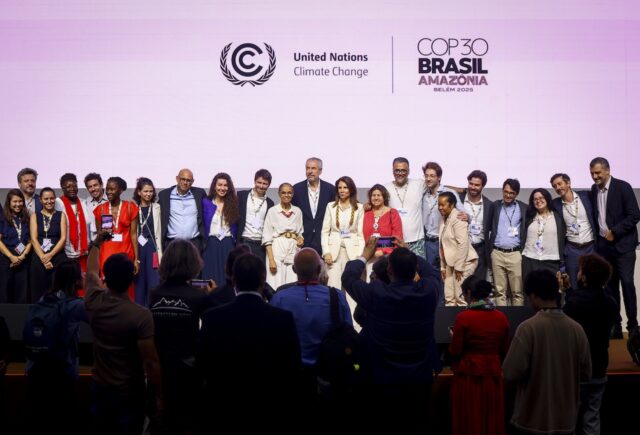Voluntary carbon markets can help to achieve more ambitious climate mitigation commitments, says a new report, as well as significantly scaled-up flows of finance to developing countries. Will negotiators at COP26 take notice?

In short
- The voluntary carbon markets (VCM) for offsetting carbon operate outside the purview of governments, creating a framework for collaboration between private actors in developing and developed countries.
- The market for this carbon offsetting is growing steadily, but is – partly due to the lack of rules – still surrounded with controversy.
- Offsets have a track record of being ineffective and giving licence to polluters to continue with business as usual.
- Clear market rules set by governments and stakeholders should remove uncertainty around carbon accounting.
It is probably one of the most controversial questions at this month’s crucial UN Climate Change Conference in Glasgow: can Voluntary Carbon Markets (VCMs) truly help secure our net zero future, and how?
The status of VCMs is related to Article 6 of the Paris Climate Agreement, which aims to promote approaches that will assist governments in implementing their national climate goals through voluntary international cooperation.
Article 6 is also the final, unfinished, piece of the 2015 climate treaty. There is, however, not much confidence that the present COP26-meeting will succeed in resolving the matter.
Growing market for carbon offsetting
In theory, companies and individuals can cancel out the impact of some of their emissions by investing in projects that reduce or store carbon – in most cases forest preservation and tree planting.
But carbon credits are also awarded to windfarms, solar cookstoves, or better farming methods. The regular model of this so-called carbon offsetting is that one (usually rich) company or country buys the carbon credits from projects in (usually poor) countries elsewhere.
The market for this carbon offsetting is growing steadily, but is – partly due to the lack of rules – still surrounded with lots of controversy. Offsets have a track record of being ineffective and giving licence to polluters to continue with business as usual.
However, according to supporters, the practice of offsetting and selling carbon credits produces a flow of money to developing countries, which in turn will help them preserve carbon sinks and develop their economies along low-carbon lines.
‘Strict conditions need to be met’
The organisations that released the final report [pdf] of the Voluntary Carbon Markets Global Dialogue, on the eve of the Glasgow conference, can be characterised as proponents.
However, as they emphasise, only when strict conditions are met. The report sets out an action agenda with six principles to maximise the contribution of the VCM to ambitious climate action and development. It lays out how governments can strategically engage with the voluntary market, and how carbon accounting can be transparent and credible.
The VCM Global Dialogue provides a platform for host countries’ governments, private sector and civil society representatives in developing countries to formulate how to make the voluntary carbon market work on the ground.
International advisory company Climate Focus has hosted the Dialogue, supported by organisations from South Africa, Colombia and Indonesia. Lieke ‘t Gilde, who is a senior consultant at Climate Focus where she specialises in carbon pricing instruments and carbon markets, co-organised the platform meetings the past year.
What do the participants of the VCM Dialogue expect from the Glasgow meeting? “In principle, voluntary carbon markets operate separately from the Article 6 market which is being negotiated at COP26,” ‘t Gilde told Impact Investor.
Article 6 creates a framework for voluntary cooperation between countries to implement their nationally determined climate goals. The voluntary carbon markets operate outside the purview of governments, creating a framework for collaboration between private actors in developing and developed countries.
Uncertainty
But the lack of an agreement on trading of mitigation outcomes in the Paris Agreement is creating uncertainty, which is felt by voluntary carbon market stakeholders, ‘t Gilde warned.
Countries that host voluntary carbon market projects have doubts about how the international transfer of emission reductions generated in the voluntary carbon market might negatively impact their ability to achieve their own national climate goals, as they may no longer be able to use these emission reductions for this.
“This is why it is important that COP26 produces an agreement on Article 6: to provide clarity,” said ‘t Gilde. However, VCM Global Dialogue’s report recommends that voluntary carbon market stakeholders should not wait for a COP26 outcome.
“All stakeholders can contribute to enhancing transparency on carbon accounting: governments should define which accounting approaches apply to certain projects and investments,” ‘t Gilde said.
“At the same time, clarity and transparency is needed on the claims buyers make when purchasing emission reductions. We recommend governments to actively engage with the voluntary carbon market, and tap into these financing sources to incentivise further emission reductions.”






